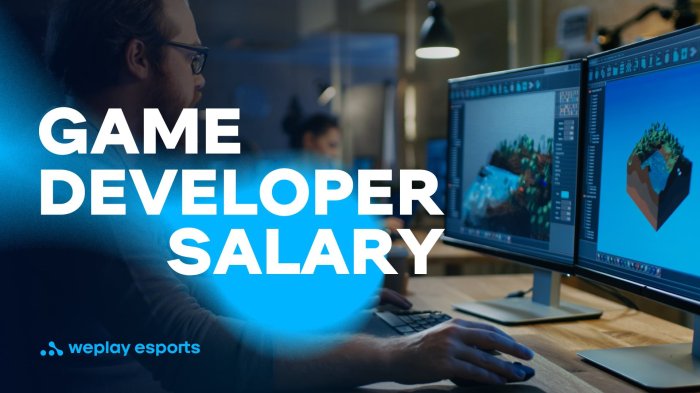Esports salary: It’s not just about pixels and pings anymore! Think six-figure contracts, lucrative sponsorships, and the potential to rake in serious cash. This isn’t your average weekend gaming session; we’re talking about a professional industry where elite players compete for global recognition and hefty paychecks. This exploration dives deep into the world of esports earnings, examining everything from average salaries across different games to the impact of tournament wins and the role of streaming income.
We’ll break down how salaries vary across games like League of Legends, Dota 2, CS:GO, and Valorant, comparing different roles within a single game and the influence of team performance. Beyond just player salaries, we’ll also look at the compensation of coaches and management, exploring the different income streams available to pro gamers and how they stack up against traditional athletes.
Get ready to level up your understanding of the esports economy!
Factors Influencing Esports Player Earnings
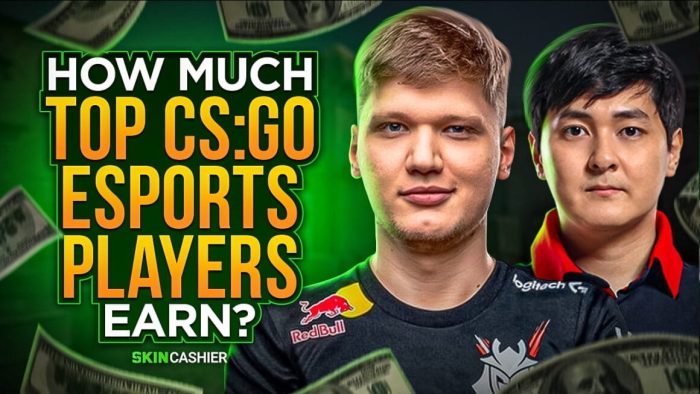
Landing a spot on a pro esports team is the dream, right? But just how much those pro gamers rake in is way more complicated than just how good they are with a controller. There’s a whole bunch of factors that go into determining an esports athlete’s salary, and it’s a fascinating mix of skill, marketing, and a bit of luck.
Skill is obviously a huge part of the equation. The better you are, the more likely you are to win tournaments and attract sponsors. Think of it like any other sport – the top players in the NBA or NFL earn millions because they consistently deliver top-tier performance. The same principle applies to esports. A player’s win rate, KDA (kills, deaths, assists), and overall impact on their team directly affect their value to a team and their potential for earning a higher salary.
Skill Level and Earning Potential
The correlation between skill and earnings isn’t perfectly linear, though. While exceptional skill is a prerequisite for high earnings, it’s not the only factor. A highly skilled player on a less successful team might earn less than a slightly less skilled player on a consistently winning team with lucrative sponsorships. Think of it like this: a star player on a small-market team in traditional sports might not earn as much as a slightly less talented player on a powerhouse team in a major market.
The team’s success and overall visibility play a crucial role in amplifying individual player value.
Additional Factors Influencing Esports Income
Beyond pure skill, several other factors contribute significantly to an esports player’s income. These factors often determine whether a highly skilled player becomes a millionaire or simply makes a comfortable living.
- Sponsorship Deals: Top players often secure lucrative sponsorship deals with gaming hardware companies, energy drink brands, and other companies targeting the gaming community. These deals can significantly boost their income beyond their team salary. For example, a popular streamer might earn hundreds of thousands of dollars annually through sponsorships alone.
- Streaming Revenue: Many professional esports players supplement their income through live streaming platforms like Twitch and YouTube. Successful streamers can earn substantial revenue through subscriptions, donations, and advertisements. Popular streamers can earn six-figure salaries, or even more, purely from their streaming activities.
- Merchandise Sales: Some players have developed their own merchandise brands, selling clothing, accessories, and other items featuring their logo or branding. This can create a passive income stream, further increasing their overall earnings.
- Tournament Winnings: This is the most straightforward source of income. Winning major tournaments can result in substantial prize money, often reaching hundreds of thousands or even millions of dollars depending on the scale of the competition.
Comparison of Income Streams: Esports vs. Traditional Sports
While both esports and traditional sports athletes rely heavily on performance-based earnings (tournament winnings/salaries/ endorsements), the income streams differ in some key aspects. Traditional athletes often rely more heavily on fixed salaries from their teams, supplemented by endorsement deals. Esports players have a more diverse range of income sources, including streaming revenue and merchandise sales, which can potentially lead to higher overall earnings for the top players.
However, the stability of income can be less consistent in esports, as tournament winnings and streaming revenue can fluctuate.
Salary Distribution Within Esports Teams
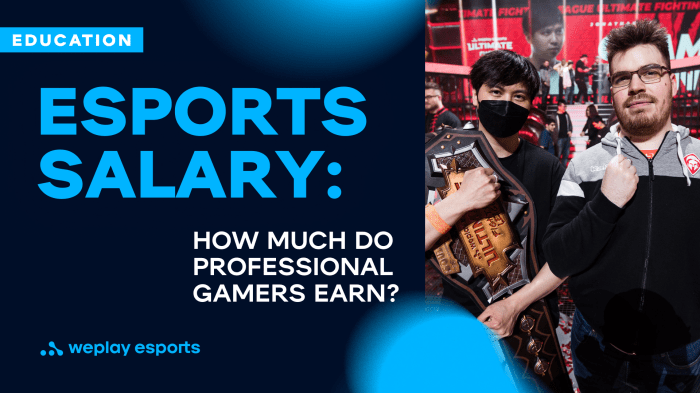
Esports team salary structures are complex, varying significantly based on factors like team size, game title, league affiliation, and overall revenue. While some teams operate with relatively transparent compensation models, others maintain a degree of secrecy. Understanding this distribution is key to comprehending the financial landscape of professional esports. This section will explore the typical salary ranges for different roles within an esports team, discuss various compensation models, and examine the influence of team ownership and revenue on player salaries.
A typical professional esports team consists of players, coaches, and management staff, each with varying responsibilities and compensation levels. The allocation of team revenue among these roles depends heavily on the team’s performance, sponsorship deals, and overall financial success. Star players often command significantly higher salaries than their teammates, reflecting their contributions to the team’s wins and overall brand value.
Salary Structure Within Esports Teams
The following table provides a generalized overview of salary ranges and responsibilities within a professional esports team. Note that these figures are estimates and can vary drastically depending on the factors mentioned previously. Specific numbers are rarely publicly available.
| Role | Salary Range (USD Annual) | Responsibilities | Percentage of Team Revenue (Estimate) |
|---|---|---|---|
| Star Player | $50,000 – $500,000+ | In-game performance, team strategy, media appearances | 20-40% |
| Starting Player | $20,000 – $150,000 | In-game performance, team practice, maintaining skill level | 10-25% |
| Substitute Player | $5,000 – $50,000 | Practice, fill-in for starting players, maintaining skill level | 2-10% |
| Coach | $30,000 – $100,000 | Team strategy, player development, practice planning, scouting | 5-15% |
| Manager/General Manager | $40,000 – $200,000+ | Team operations, contract negotiations, sponsorship deals, player management | 10-20% |
| Analyst | $25,000 – $75,000 | Data analysis, strategy development, opponent scouting | 3-8% |
Esports Compensation Models
Esports organizations employ various compensation models to incentivize performance and attract top talent. These models often blend base salaries with performance-based bonuses and revenue sharing.
Examples include:
- Base Salary + Tournament Winnings: This is a common model, where players receive a fixed salary supplemented by a percentage of tournament winnings. This directly ties compensation to on-field success.
- Base Salary + Performance Bonuses: Players receive a base salary and additional bonuses based on individual and team performance metrics, such as kills per game, win rate, or overall team placement.
- Revenue Sharing: A portion of the team’s revenue from sponsorships, merchandise sales, and streaming is shared among players, coaches, and management, creating a direct link between team success and individual earnings.
- Stock Options/Equity: Some organizations offer stock options or equity in the team to key players and staff, aligning their financial interests with the long-term success of the organization. This is more common in established and well-funded teams.
Team Ownership and Revenue Generation’s Impact on Player Salaries
Team ownership and revenue generation are directly correlated with player salaries. Teams with wealthy owners or lucrative sponsorship deals can afford to pay higher salaries, attracting top talent and increasing their competitive edge. Teams with limited funding may struggle to compete for the best players, resulting in lower salaries across the board. The success of a team’s revenue-generating strategies, including merchandise sales, streaming revenue, and sponsorship deals, directly impacts the financial resources available for player compensation.
For example, a team like Cloud9, with its strong brand recognition and diverse revenue streams, can afford to pay significantly higher salaries compared to a smaller, less established organization competing in a niche game. The revenue generated through successful tournaments and sponsorships directly translates into increased player salaries and better overall team resources.
The Impact of Tournament Winnings on Salaries: Esports Salary
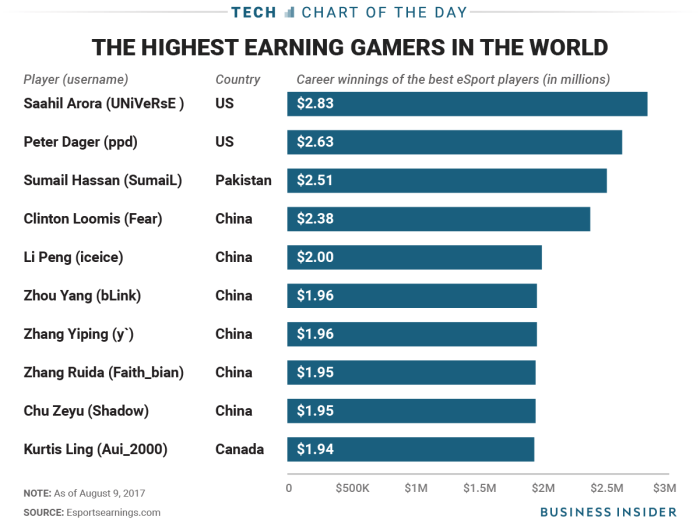
Tournament winnings are a massive game-changer in the esports world, significantly impacting both player salaries and team budgets. While base salaries provide a foundation, the potential for massive prize pools from major tournaments like The International (Dota 2) or the League of Legends World Championship dramatically alters the financial landscape for players and organizations alike. This influx of cash directly affects player compensation, team investments, and future earning potential.Winning a major tournament can instantly catapult a player’s earning potential.
The sheer magnitude of prize pools, often reaching millions of dollars, means that even a small share can represent a life-changing sum. This windfall can significantly exceed a player’s annual base salary, dramatically boosting their overall income for that year. Moreover, this success often translates into lucrative sponsorship deals and streaming contracts, creating a ripple effect that extends far beyond the immediate tournament winnings.
Prize Money Distribution and its Influence on Salaries, Esports salary
The distribution of prize money within a team significantly shapes the individual player salaries. Teams typically have internal agreements outlining how winnings are divided among players, coaches, and other team personnel. Factors influencing this distribution can include individual player performance, seniority, and pre-existing contracts. For example, a team might allocate a larger share to the star player who consistently carries the team, while newer players receive a smaller portion.
This internal distribution directly impacts the final salary each player receives after a tournament victory. In some cases, teams may even include performance-based bonuses within their contracts, tying salary increases directly to tournament performance.
Tournament Success and Future Earning Potential
Winning a major tournament isn’t just about the immediate payout; it’s a major investment in future earning potential. A championship victory significantly elevates a player’s profile, making them a more attractive prospect for sponsors, streaming platforms, and other lucrative opportunities. High-profile players who consistently perform well in major tournaments often command higher base salaries in subsequent contracts. This is because teams recognize the value of having a proven winner on their roster, and they are willing to invest more to retain their services.
For example, a player who consistently places high in major tournaments will likely see their salary offers increase substantially in the following years, as teams compete to secure their talent. This positive feedback loop demonstrates the long-term impact of tournament success on a player’s career trajectory and financial security.
Illustrative Examples of High-Earning Esports Players
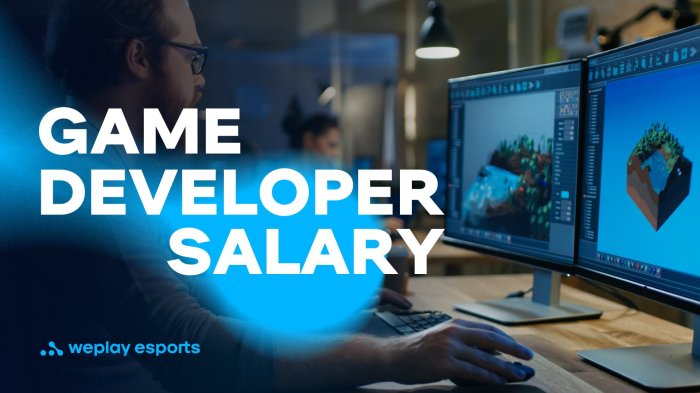
The world of professional esports boasts a diverse range of incredibly talented and highly compensated players. Their success isn’t just about raw skill; it’s a combination of dedication, strategic thinking, teamwork, and a bit of luck. Examining the careers of some top earners provides insight into the factors that contribute to significant financial success in the competitive gaming landscape.
These examples highlight the diverse paths to esports stardom, showcasing the different games, teams, and strategies that can lead to substantial earnings. It’s important to note that salaries and winnings can fluctuate significantly year to year, depending on team performance, sponsorship deals, and overall market conditions.
Oleksandr “s1mple” Kostyliev (Counter-Strike: Global Offensive)
s1mple is widely considered one of the greatest Counter-Strike: Global Offensive players of all time. His aggressive playstyle and incredible aim have made him a legend. His consistent high performance has translated into lucrative contracts and substantial tournament winnings, cementing his place among the highest-paid esports athletes.
- Career Path: Started playing professionally at a young age, quickly rising through the ranks to become a star player for Natus Vincere (Na’Vi).
- Achievements: Multiple Major tournament wins, numerous MVP awards, consistently ranked among the top players globally.
- Income Sources: Salary from Na’Vi, tournament winnings, streaming revenue, sponsorships (e.g., equipment manufacturers, energy drinks).
Johan “N0tail” Sundstein (Dota 2)
N0tail, captain of OG, is a Dota 2 icon known for his leadership, strategic brilliance, and incredible team cohesion. He’s not only one of the highest-earning esports players but also a pivotal figure in shaping the competitive Dota 2 landscape. His two consecutive The International victories are a testament to his exceptional skills and dedication.
- Career Path: Co-founded OG, built a legendary team, and achieved unprecedented success in Dota 2’s most prestigious tournament.
- Achievements: Two-time The International champion, multiple other tournament victories, widely respected for his leadership and in-game decision-making.
- Income Sources: Salary from OG, massive The International winnings, streaming revenue, sponsorships.
Lee “Faker” Sang-hyeok (League of Legends)
Faker, often called the “Unkillable Demon King,” is a League of Legends legend. His exceptional mechanical skill, game sense, and unwavering composure have solidified his status as one of the greatest players in the history of the game. His impact on the game and the industry is immeasurable.
- Career Path: Joined SK Telecom T1 (now T1) early in his career and remained a cornerstone of their success for over a decade.
- Achievements: Three League of Legends World Championship titles, numerous LCK titles, countless MVP awards, considered one of the most influential players in League of Legends history.
- Income Sources: Salary from T1, tournament winnings, streaming revenue, endorsements (e.g., gaming peripherals, mobile games).
Kyle “Bugha” Giersdorf (Fortnite)
Bugha’s victory in the inaugural Fortnite World Cup Solo event catapulted him to superstardom. His victory showcased not only his exceptional Fortnite skills but also the massive potential for prize money in the battle royale genre. He remains a highly recognizable figure in the Fortnite community and a prominent streamer.
- Career Path: Rose to prominence through online tournaments and ultimately won the Fortnite World Cup.
- Achievements: Fortnite World Cup Solo champion, numerous high-placing finishes in other major Fortnite tournaments, significant streaming success.
- Income Sources: Tournament winnings, streaming revenue, sponsorships, endorsements.
FAQ Summary
What are the most common ways esports players make money besides salaries?
Sponsorships, streaming revenue (Twitch, YouTube), merchandise sales, and appearances/endorsements are all significant income sources.
How do taxes affect esports player earnings?
Esports players are subject to income taxes just like any other professional athlete, varying by country and region. They often work with tax professionals to manage their earnings.
What about the future of esports salaries?
With increasing viewership and investment, esports salaries are expected to continue rising, potentially closing the gap with traditional sports in the coming years.
Is there a minimum salary in esports?
There’s no universally mandated minimum salary in esports. Compensation varies greatly depending on the player’s skill, team, and game.
